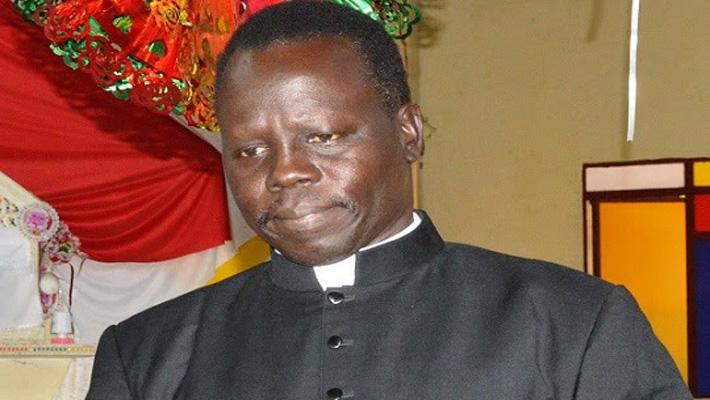JUBA, JANUARY 10, 2020 (CISA)– Ethnic leaders from the Bari Community Association have distanced themselves from critics of Archbishop Stephen Ameyu’s appointment to the archdiocese of Juba.
Since his appointment in December, Archbishop Ameyu has faced controversy for several reasons, including that he is not a member of the region’s predominant Bari tribe.
“Those indigenous clergy and faithful Bari who have rejected the appointment of the new Archbishop for Juba [do] not reflect the position of the entire Bari Community or their association i.e. the Bari Community Association,” Cornelio Bepo Lado Kenyi, chairman of the association said in a statement.
According to the leaders, those criticizing the appointment of the archbishop have not been mandated by either the community or the association.
“To be clear, they have neither sought the opinion of the Bari on the subject under reference nor have they (been) delegated to do so. No Bari will speak on behalf of the Bari Community except when mandated by its leadership and as guided by the BC Constitution,” the statement added.
The Bari Community Association issued its statement after letters protesting the appointment of bishop Ameyu were sent to the Vatican.
One of the letters sent on December 12, was signed by three priests and five laymen, who identified themselves as “community elders,” and were widely understood to be presenting themselves as Bari tribal leaders.
On December 19, the Sudanese Catholic Bishops’ Conference issued a statement supporting the appointment of Ameyu.
We “celebrate with Catholics and all the people of Juba and the nation, that there is now a new Catholic Archbishop,” the bishops said.
“We acknowledge the decision of the Holy Father of accepting the resignation of Archbishop Paolino Lukudu, allowing him to take a well-deserved and long overdue rest, and appointing his successor, Most Reverend Stephen Ameyu Mulla as the Archbishop of Juba,” they added.
